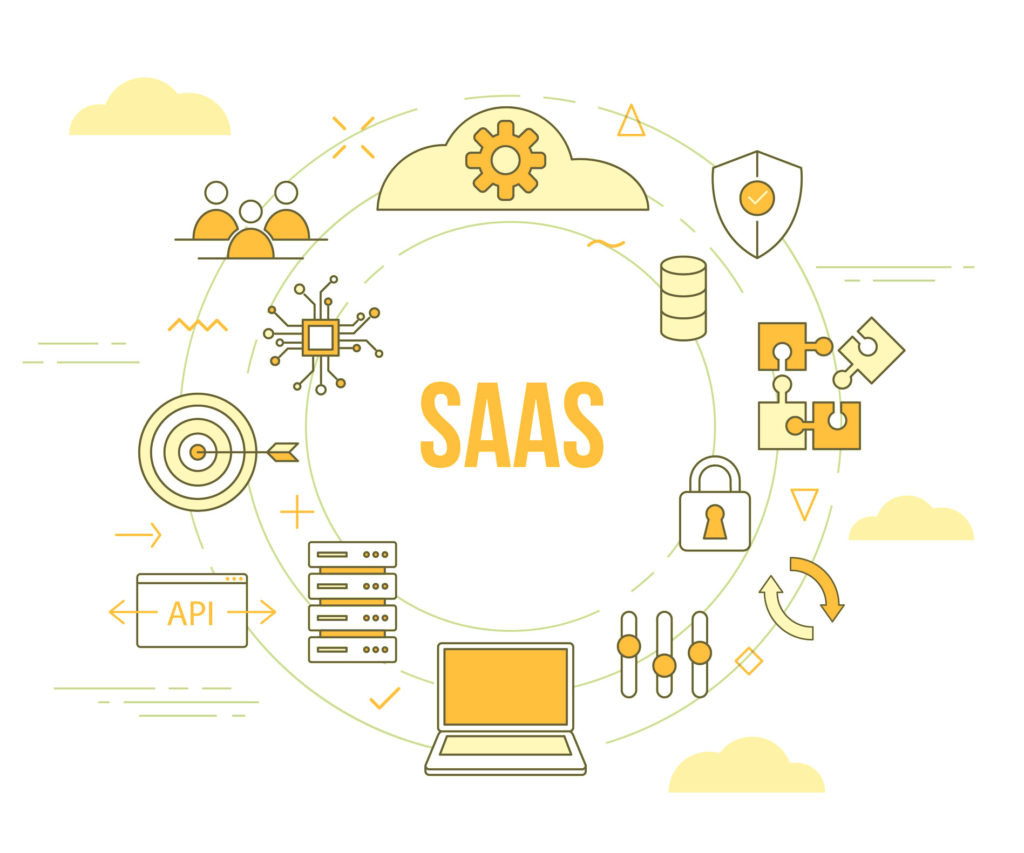Many companies are focusing on the digitalisation of their enterprises. Thanks to technologies, such as IoT, AI and advanced automation businesses create new working environments, often called Industry 4.0 or smart factories. Therefore, they try to protect the data and use cloud security also known as cloud computing security. It is a collection of rules, controls, procedures, and technologies that work together to secure cloud-based systems, data, and infrastructure.
Trends such as cloud computing, virtualisation, and mobility allow businesses to increase their agility and flexibility rapidly. Cloud technologies make it easier for companies to work in growing hybrid or fully remote models of working and store their confidential data. But some of the cloud-based systems create the risk of disclosing company information. Cyber attacks are becoming more frequent, and cybercriminals can access corporate networks. To avoid situations like this and secure your company, it is essential to know cloud security solutions.
Introducing cloud computing
You are probably using cloud computing right now. If you operate an online service to send emails, edit documents, or store documents, very likely, cloud computing is making it possible. Cloud servers give companies security, access, scalability, the ability to handle any system modifications and store their data.
41 % of EU enterprises used cloud computing in 2021, mostly for e-mail and storage of files.
Eurostat
Cloud computing provides users access to various technologies while lowering entry barriers such as technical expertise and costs. It helps businesses with various IT services, such as remote collaboration, hosting and processing data. Depending on the types, it is an excellent choice for individuals and organisations.
Discover networking devices from Distrelec that can generate data for transmission and facilitate network connectivity.
Categories of cloud computing
The cloud service market is typically separated into three service models: infrastructure, platforms, and software. Customers can select between private, public, or hybrid cloud deployment strategies, depending on their business needs and security concerns.

- Public cloud – to reach a public cloud, you can use your browser. It is a computing service provided by other organisations, available to anyone. Many popular brands, such as Google Cloud, Microsoft Azure, and Amazon Web Services (AWS), host and operate public clouds.
- Private cloud – dedicated to a single customer (a company or organisation). Only that customer has access to their private cloud. In that system the owner has more control and better security.
- Hybrid cloud – consists of both public and private clouds. It means that customers have more control over their data and resources when compared to being hosted in a public cloud environment, but they still get some of the benefits of a public cloud service.
Cloud service models
Depending on business requirements, there are different models of cloud service. The main three types of cloud computing services are software as a service (SaaS), infrastructure as a service (IaaS) and platform as a service (PaaS). If you want to accomplish your goals quicker, these categories will help you.
SaaS
Software as a Service delivers web-based applications administered by the software supplier rather than by your firm. Popular ones are Microsoft Office, Google Apps, NAS, Slack and Dropbox. Thanks to vendor’s software services, your company can avoid ongoing pressures of software maintenance, network security, data availability, software management and all the other concerns that keep applications operating.
Between 2020 and 2025, the software as a service (SaaS) market is expected to grow globally.
Statista

IaaS
Infrastructure as a Service is a concept that uses virtualisation technologies to supply cloud-based infrastructure resources (such as network, storage, and operating system). Under this service model, customers do not need to maintain infrastructure. Thus the provider is responsible for ensuring the contractual quantity and availability of resources. According to Statista, Amazon, the industry leader, owns nearly half of the market, while Microsoft and Alibaba come in second and third places.
PaaS
Platform as a Service is a service that falls between infrastructure as a service (IaaS) and software as a service (SaaS). This concept gives developers access to a cloud-based platform where they may create and distribute apps without installing and working with IDEs (Integrated Development Environments). In most cases, users can choose the features they want including in their subscription.
What are cloud security solutions?
Cloud computing helps improve the business by adding efficiency and mobility, but unfortunately, it also brings some risks. To not allow for your system hacking, it is important to invest in cloud security solutions. They secure data, networks, workloads, and apps hosted on Cloud infrastructure.

Cloud services provide secure access points, such as gateways and sandboxes, allowing approved users to start and run cloud applications in a secure environment. In previous decades, software and servers used to be located on-premises and needed protection. Today, administrators of cloud services can set permissions, maintain governance, and keep track of who is using and accessing the apps.
Several cloud security solutions help protect additional data and documents kept within cloud applications. They include data loss prevention controls, encryption, securing email and web getaways.
Benefits of cloud security
Cyberattacks might happen to any business, no matter what size. It means that anyone who has internet access could be a cyberattack victim. One solution is cloud security, which is essential to protect cloud-hosted data.
The main advantages of cloud security solutions:
- Centred security.
- Improvement of monitoring and tracking.
- Easy access and control.
- Global scale.
- Enhance application speed performance.
- Web application attacks protection.
- Reduced costs.
Thanks to the appropriate cloud service, you can benefit from the reliability and reduced administration. If you’re moving everything in the cloud, you don’t need any additional resources or manual configuration as all security is in one place. According to Salesforce, 94% of businesses claimed tremendous progress in online security after moving their data to the cloud.
How to secure your cloud computing system?
Cloud data security is becoming more popular. Individuals and company owners are moving their devices, data centres, business processes, and software to the cloud. Therefore, using cloud services can raise some security concerns. Find out what you or your organisation should do to avoid cyber attacks and safeguard your cloud-based system.
Everyone who is using the internet and cares about protecting their data and information will try to set up a strong password and download antivirus. These are obvious and important factors, but besides them, there are other things you have to consider in case of securing your cloud.
Manage access control
No business wants anyone without the right permissions to access the data on their cloud. You can manage the users who try to access your cloud environment by enacting access control policies. You can also give distinct users different privileges and access regulations.

Data backup
There are plenty of scenarios where you can lose your important data. It can be human error, hardware destruction, software corruption or viruses. Thus, it is essential to have your data backed up to prevent unwanted situations. You can create a data backup locally (hard drives, USB) and electronic (cloud services and NAS).
Encrypt data in the cloud
Storing data in a cloud requires ensuring that it is properly encrypted. Encrypting is essential when the data is transferred and at rest. Check with your cloud service provider to see if they have any encryption policies. Each cloud provider should have specific standards for protecting data kept on their servers; your company should be aware of these guidelines before migrating any data.
Cloud data detection policy
Ensure that customer data is deleted from the cloud environment after the customer retention period expires or for any other reasons. If your time with a client ended, you might need to erase their data. Your company must establish data deletion rules to ensure that any information and data are safely removed from your system while remaining compliant.
Training in security for employees
Make sure that your employees also know the cloud security practices. Often, inappropriate use of the cloud environment can open space for threats in your system. Training the workforce to know how to use any cloud tools, software, and networks will help ensure your company’s data security.

Vulnerability tests
Cloud service providers should consider using industry-leading vulnerability and incident response tools. These incident response tools’ solutions offer fully automated security assessments to test for system flaws and cut the time between major security audits. By ensuring that these tests run correctly, you can notice holes that may have developed in your system.
Monitoring of cloud environment
Cloud monitoring refers to the tools and services used to keep track of the cloud environment’s operation and performance. The cloud monitors collect data from every part of its infrastructure, giving providers and users complete visibility into their environment. However, not many companies ensure their cloud system monitoring, even though sometimes traditional security solutions aren’t enough against some threats.
Summary
Choosing the correct cloud security solution is crucial if you want to get the most out of the cloud and keep your company safe from unauthorised access, data breaches, and other dangers. Make sure your cloud system is secured and protected from any cyber-attacks. Start by implementing some of the above guidelines. And make sure you choose the right provider. Many firms in the market offer high security to your data and systems.











